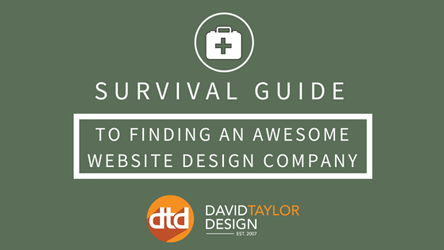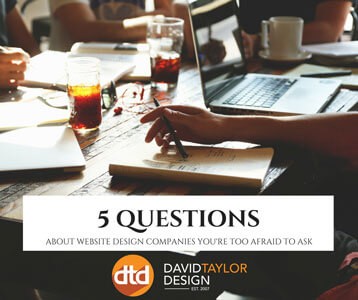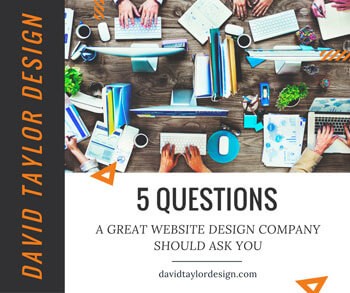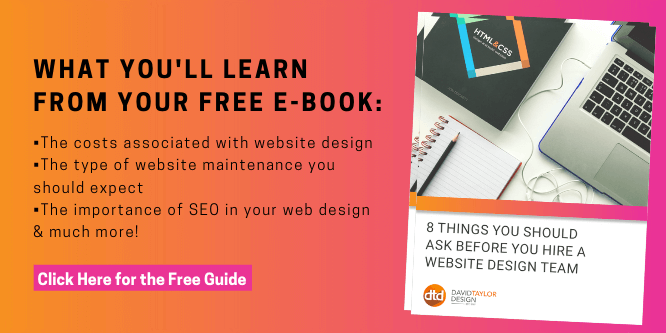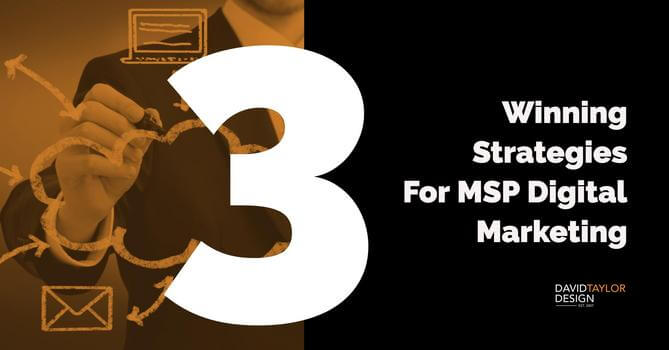
You finally went for it and decided to start a business. Or maybe your business has been around for a while but needs a refresh. What’s your first step? Probably building a great-looking website. This can be a big step, and if you aren’t familiar with web design, you might be feeling overwhelmed at the thought of finding the right web designer. There are many factors that go into choosing the right designer for each specific business, so we want to make sure you have our best advice on why it’s important to hire a pro, how to pick the right one, and how to make sure all those questions you have are getting answered.
Hiring a professional designer is the first step when it comes to building the website you’ve always dreamed of. But trying to choose between the thousands of designers out there is a challenge. Knowing what makes a good designer and discovering how they can help you be successful is an integral part of choosing the right fit for you.
5 Reasons Why You Should Hire a Professional Website Designer
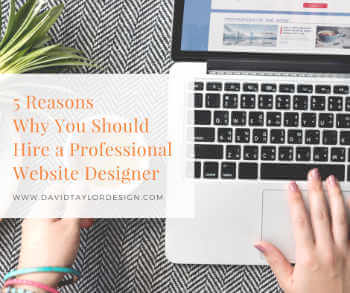
Save Time and Focus on Your Business
Time is money, especially when you’re running a business. When you hire a professional web designer, you’re not just paying for a service; you’re reclaiming your time. Professionals have streamlined processes and expertise that enable them to deliver a high-quality website more efficiently than you could on your own. This frees you up to focus on what you do best—running your business.
Get a Custom Design Tailored to Your Needs
A professional web designer can create a unique, custom website that aligns perfectly with your brand and business goals. Unlike DIY website solutions, which often offer limited customization and can look generic, a custom-designed website sets you apart from the competition. It’s an investment in your brand’s online credibility.
Enhance User Experience
A well-designed website is not just about aesthetics; it’s also about providing a seamless user experience. Professional designers know how to create a site that’s both visually appealing and user-friendly. They understand how to lay out information, optimize page load speeds, and make navigation intuitive, all of which contribute to a positive user experience that keeps visitors coming back.
Stay Updated with Latest Technologies
The digital landscape is constantly evolving, with new technologies and design trends emerging regularly. Professional web designers stay abreast of these changes, ensuring your website remains current and effective. They can implement the latest features that DIY website builders might not support, giving you a competitive edge.
Optimize for SEO
Search Engine Optimization (SEO) is crucial for your website’s visibility. A professional web designer knows how to build a website that’s not just attractive to humans, but also to search engine algorithms. They’ll implement best practices for SEO, such as fast page load speeds, mobile responsiveness, and high-quality content, to improve your site’s ranking.
Plus, they’ll keep your site updated to adapt to ever-changing SEO guidelines.
The Bottom Line
Many business owners underestimate the impact of a professionally designed website. With the internet at everyone’s fingertips and user intent becoming increasingly specific, can you afford to take the risk? Finding the right designer for your website is not just an expense; it’s a long-term investment that will pay off in increased brand credibility, higher search engine rankings, and improved user experience.
So, if you’re ready to take your business to the next level, take a look at our professional web design services.
What Makes a Good Website Designer?
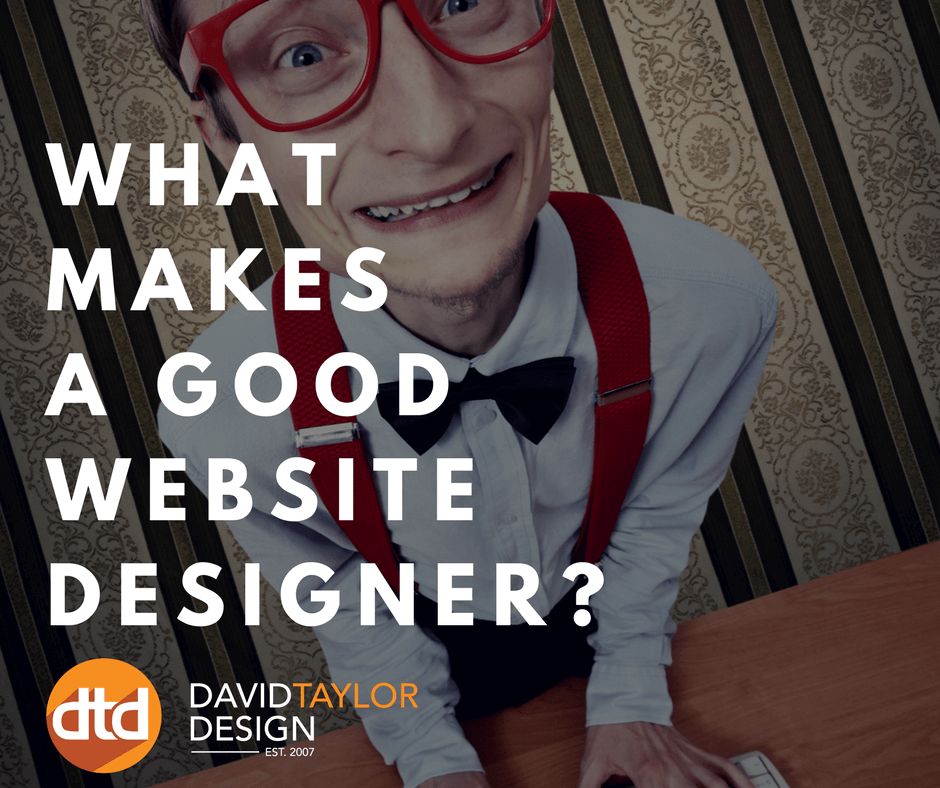
Here are some essential qualities to look for in a web designer:
Flexibility and Open Communication
A top-notch web designer is not just an expert in design, but also a great communicator who is flexible in their approach. They should be willing to listen to your needs and adapt their solutions to fit your unique requirements.
Open communication is key; your designer should be receptive to your feedback and concerns. Otherwise, you risk ending up with a website that doesn’t align with your vision, leading to frustration and wasted resources.
Lifelong Learner
The digital landscape is ever-changing, and a good web designer stays ahead of the curve. They should be eager to learn new technologies and willing to update their skills to provide the best service possible. Even if your project doesn’t require the latest bells and whistles, you’ll want a designer who’s capable of delivering them should the need arise.
A designer who’s committed to continuous learning won’t let you down or limit your website’s potential.
Meticulous Attention to Detail
In web design, the devil is in the details. A single line of code can make or break your website’s functionality. That’s why a good web designer is meticulous and has a keen eye for detail. They understand that even minor errors can lead to major issues, affecting user experience and overall website performance.
When finding the right designer, look for someone who values precision and is committed to delivering a polished final product.
Creative Problem-Solving
Creativity in web design goes beyond aesthetics. Yes, a good designer has an artistic eye, but they also excel at creative problem-solving. They should be able to embrace innovative approaches to deliver a website that looks good and meets all your functional requirements. During your initial discussions, pay attention to how the designer approaches problem-solving.
Do they offer innovative solutions tailored to your needs? If so, you’re on the right track.
In Summary
Finding the right designer for your website is a critical decision that can significantly impact your online presence. Look for a flexible designer, committed to ongoing learning, detail-oriented, and creative in their problem-solving approach. By focusing on these qualities, you’ll be well on your way to hiring a designer who can deliver a website that exceeds your expectations.
Why Your Website Design Company Must Have A Project Manager
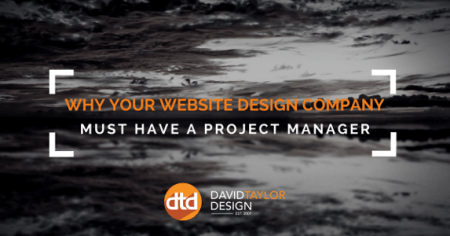
The Complex Web of Website Design Projects
When it comes to website design, consider it to be a bustling kitchen with multiple chefs. There are copywriters, designers, developers, SEO specialists, and perhaps even photographers. Each of these roles might be filled by more than one person, depending on the project’s scope and timeline. Now, add the client and their team to this mix. Without a Project Manager to bring order to this chaos, you’re essentially navigating a ship without a compass.
If your website design company lacks a designated Project Manager or an equivalent role like an Account Manager or Project Coordinator, you’re treading on thin ice.
A Project Manager acts as the glue that binds all these disparate elements together. They minimize risks, ensure tasks are executed correctly, and keep everyone on schedule. Without this central figure, your project is likely to unravel.
Who’s Steering the Ship?
So, who’s your point of contact at the design company? Is it the designer, the developer, or the copywriter? Who’s organizing meetings and updating you on the project’s status?
If you’re dealing directly with just the owner or a designer, it’s time to reassess. Lack of clear communication channels can lead to misunderstandings, missed deadlines, and stalled projects, all of which can blow your budget.
You might think you’re getting a bargain, but remember, you get what you pay for. If your point of contact is too swamped to respond to emails or calls, that “cheap” project becomes expensive as delays accumulate.
A professional Project Manager has one primary focus: keeping your project on track. They set and enforce deadlines, ensuring that everyone involved is accountable. In short, they make your website design project tick like a well-oiled machine.
If you’re still on the fence about the companies you’re considering, don’t hesitate to reach out to us for a comprehensive comparison of services.
Survival Guide To Finding An Awesome Website Design Company
A top-notch website is non-negotiable for any business or organization. A well-designed, user-friendly website lends credibility and helps you stand out in a crowded market. But let’s face it, crafting such a website requires a level of expertise that only professional web designers can offer.
Navigating the labyrinth of web design companies can be overwhelming, especially if you’re new to the digital realm. That’s why we’ve put together this survival guide to help you find the right designer who can bring your vision to life.
Start With a Wish List
Before diving into your search, jot down what you envision for your website. List the features, functionalities, and the kind of content you want to include. If you’re looking to revamp an existing site, note down the changes you’d like to see.
Even if you’re not tech-savvy, focus on what you want your website to achieve. This will give you a solid starting point for discussions with potential designers.
Do Your Homework
While researching, pay close attention to designers’ online portfolios. This will give you design inspiration and help you gauge if the designer can meet your specific needs. Portfolios can be a treasure trove of ideas, revealing possibilities you might not have considered for your site.
Questions to Guide Your Decision
After reaching out to potential web design partners, consider the following questions to ensure you’re making an informed choice:
- How’s Their Communication? Is the company responsive? Do they listen to your ideas and contribute constructively to the discussion?
- Do They Bring Expertise to the Table? Share your website goals and see if they offer valuable insights for optimization.
- What’s Included in the Service? Clarify the scope of work. Are there additional costs for specific features? Does the pricing include revisions, or will that be extra?
- Is Content a Priority? A stellar web design company will emphasize the importance of content. After all, content is king. Make sure they have a strategy for showcasing your content effectively.
By following this guide, you’ll be well on your way to finding the right designer who can create a website that’s not just visually appealing, but also functional and aligned with your goals.
8 Secrets to Success From a Top Website Designer

1. Pick the Right Theme for Your Business
A theme serves as the skeleton of your website, providing the basic layout and design elements. While there are countless themes available, both free and paid, the key is to choose one that aligns with your business’s style, goals, and mission.
Ask yourself:
- Is the theme user-friendly?
- Will it offer a seamless experience for my customers?
- Is it compatible with various browsers?
- Can I easily add new pages?
- Does the theme provider offer support?
Customer reviews can be a goldmine of information, helping you make an informed decision.
2. Ensure Your Website Is Responsive
With nearly half of all web traffic coming from mobile devices, a responsive design is non-negotiable. Post-launch, rigorously test your website on multiple screen sizes to ensure it’s fully functional and visually appealing across the board.
3. Use Purposeful Imagery
Avoid the common pitfalls of using excessive or irrelevant images. Each image should serve a specific purpose, whether it’s to engage users or guide them through your content. Choose visuals that complement and enhance your website copy.
4. Craft Clear, Persuasive Copy
Your website copy should be strategically placed and easy to digest. It should include:
- A captivating opening line
- Informative body content that highlights the benefits of your products or services
- A compelling call-to-action (CTA)
Make sure your CTA is actionable, accompanied by a button or contact information for immediate user engagement.
5. Deliver Valuable Content
For both SEO and customer engagement, your content should offer real value. It should be clear, concise, and position you as an authority in your field.
6. Continuously Test and Optimize
Utilize A/B testing to continually refine your website. This data-driven approach helps ensure that your site is optimized for both user experience and revenue generation.
7.
Be Decisive Yet Collaborative
Web design is as much an art as it is a science. While you should have the final say, don’t underestimate the value of input from your team and customers. Their insights can be invaluable.
8. View Web Design as a Long-Term Investment
A successful website is never truly ‘finished.’ It should evolve alongside your business goals and customer needs. Regular updates and A/B testing can help you adapt and grow over time.
By following these tips, you’re well on your way to finding the right designer and creating a website that’s not just aesthetically pleasing, but also highly effective.
Remember, the right web designer will not only answer your questions, but will also ask you questions to better understand your business and goals. This two-way communication is crucial for your online success.
Your Top 4 Website Design Company Questions Answered
Navigating the world of website design can be overwhelming, especially when you’re not familiar with the jargon and processes involved. To help you make an informed decision, we’ve answered the top four questions you’re likely to have when finding the right designer for your website project.
1. What’s the Cost Going to Be?
The cost of a website design project is often the elephant in the room. It’s a significant investment, but one that pays off eventually. The price can vary widely depending on several factors:
- Do you need a payment gateway for donations or sales?
- How many pages will your website have?
- Are you also in need of a new logo?
- Will you provide the copy, or do you need a copywriting service?
- Do you have specific SEO keywords in mind?
- Are you interested in ongoing support or an SEO campaign?
- Any special features or integrations?
The more complex your needs, the higher the cost will be. If someone offers to build your website for a rock-bottom price, be cautious. Cutting corners by hiring inexperienced designers can lead to regret later on. Instead, focus on the value you’re getting and the rapport you have with the design team, as you’ll be working closely with them for an extended period.
Guidelines for Decision-Making:
- Are the company’s past clients reputable and successful?
- Do you like the work showcased in their portfolio?
- Is their customer service up to your standards?
- Are you comfortable with the person who will manage your project?
- Do you have a good gut feeling about the company?
2. How Long Will It Take?
Project timelines can vary based on your specific needs. For instance, if you require a new logo, that could add two weeks to the project. Copywriting services might extend it by another week. Typically, the design phase takes about two weeks, while development can range from two to five weeks. In an ideal scenario, a straightforward website project could be completed in 6–8 weeks.
Be aware that delays often occur during the approval process. If you anticipate slow turnaround times for approvals within your organization, communicate this upfront to manage expectations and timelines effectively.
3. Will My Site Rank Better in Search Engines?
Absolutely, if you choose a competent website design company that also specializes in SEO. Initially, you’ll notice a spike in website visits as your network checks out your new site.
However, to maintain and increase this traffic, an ongoing SEO strategy is crucial. This involves content updates, backlinking, and competitor analysis to ensure your site continues to attract and engage visitors.
4. What Happens Post-Launch?
Once your shiny new website is live, the work isn’t over. Consider sending an email blast to showcase your new design and features. Regular monitoring for security issues like hacking attempts and viruses is essential. Updating your site with fresh content will also keep it relevant and engaging.
If you aim to use your website as a robust marketing tool, consider investing in an ongoing SEO campaign. The effort you put into maintaining and optimizing your site should align with the returns you expect to see.
5 Questions About Website Design Companies You’re Too Afraid to Ask
Embarking on the journey of finding the right designer for your website can be daunting. It’s not just about aesthetics or budget; it’s about finding a partner who understands your business and can translate that into a compelling online presence. With a plethora of web design agencies at your fingertips, how do you sift through the noise?
Fear not. By asking the right questions from the get-go, you can cut through the clutter and zero in on the perfect fit for your project.
1.What Core Services Do You Offer?
When you’re investing in a website, you’re not just buying a design; you’re investing in a full-fledged digital strategy. So, ask upfront about the range of services the agency offers.
- Do they handle everything from design and development to marketing?
- Are their services up-to-date with industry standards?
For instance, can they develop a mobile-responsive site and mobile apps that sync seamlessly with your website? Don’t hesitate to inquire about their SEO strategies and how they’ve successfully driven traffic for other brands.
2. Can You Share Your Track Record?
An agency’s past work can speak volumes about their expertise. Ask for case studies, client testimonials, and examples of projects that are similar to yours. If they haven’t worked in your industry before, probe them on how they plan to navigate the unique challenges your business might pose.
A reputable agency will have a robust portfolio and a track record of maintaining long-term client relationships, offering tailored solutions rather than cookie-cutter approaches.
3. What’s the Process for Making Future Changes?
The digital landscape is ever-changing, and your website should be equipped to adapt. Some agencies charge by the hour for updates, while others offer a user-friendly Content Management System (CMS) that allows you to make basic changes yourself. Opt for an agency that empowers you to manage your content without always ringing the cash register.
However, for more complex updates like new layouts or animations, understand the costs involved.
4. How Do You Measure Success?
Metrics matter. If the agency starts throwing around terms like “unique visits,” “time on site,” or “bounce rate,” don’t be shy to ask for a layman’s explanation. Knowing how these metrics interact can give you a clearer picture of what success looks like.
While exact numbers might be hard to pin down, an experienced agency should be able to provide ballpark figures based on their work with similar clients.
5. How Is Pricing Structured?
Transparency in pricing is non-negotiable. Beware of agencies that offer a lowball estimate only to inflate costs as the project progresses. A thorough agency will conduct an in-depth discovery session to understand your needs and provide a detailed Scope of Work (SOW). This ensures that everyone is on the same page about deliverables, timelines, and budgets from day one.
Asking these questions may feel intimidating, but remember, the success of your website—and by extension, your business—depends on the expertise and reliability of the web design agency you choose. So go ahead, ask away, and set yourself on the path to finding the right designer who can turn your digital dreams into reality.
5 Questions a Great Website Design Company Should Ask You
Navigating the labyrinth of web design can be overwhelming. From aesthetics to functionality, there’s a lot to consider. But a great website isn’t just about what you see; it’s about understanding your business, your industry, and most importantly, you. That’s why the right web design company will ask you insightful questions to get to the heart of what you need.
So, what should you expect when you’re on the hunt for the perfect web design partner?
Here are five crucial questions a top-notch design company should be asking you.
1. Who Are Your Competitors?
It might seem counterintuitive to discuss your competitors, but understanding them can offer valuable insights into your industry and how you can stand out. A savvy design company will want to know who you’re up against to gauge the competitive landscape.
This helps in crafting a website that not only resonates with your brand but also gives you a competitive edge. So, when asked about your competitors, be candid and comprehensive; it will only benefit your project eventually.
2. Can You Share Samples of Websites You Like?
Your taste matters. A competent design company will want to get a sense of your style to ensure the final product is something you’ll love. By asking for examples of websites you admire, they can better understand your aesthetic preferences and how to infuse your brand’s unique voice into the design. This collaborative approach ensures that the result is a true reflection of your business.
3. What Content Do You Want to Feature?
Content is king, and your website is its kingdom. A design company should ask about the kind of information you want to include. Whether it’s product descriptions, blog posts, or customer testimonials, knowing this upfront helps in planning the site’s architecture. It also allows the design team to offer expert recommendations tailored to your specific needs.
4. Do You Have a Professionally Designed Logo?
Your logo is the face of your brand, and it needs to be in sync with your website’s design. If you’re a new business or considering a rebranding, some design companies offer logo creation as part of their services. Discussing this early on can streamline the design process and ensure a cohesive brand identity across all platforms.
5. Are You Interested in Adding Images?
Visual elements can make or break a user’s experience. A design company should inquire about your plans for images. Whether you have a library of high-quality photos or need to explore other options, this question helps in planning the visual aspects of your site. If you don’t have images, the design company may offer photography services or suggest effective alternatives.
Remember, the right web design company will not only answer your questions, but will also ask you the right ones. These questions are a good indicator that you’re dealing with professionals who are committed to making your online presence as impactful as possible.
Conclusion
Navigating the digital landscape to find the right designer for your website can be a daunting task. But remember, a great website is more than just eye-catching design; it’s a strategic tool that reflects your brand, engages your audience, and drives business growth. By asking the right questions and knowing what to expect, you can simplify the process and make an informed decision that aligns with your business goals.
At David Taylor Digital, we understand the intricacies of web design and how crucial it is for your business. We’re committed to not just meeting but exceeding your expectations.
So, if you’re in the process of finding the right designer, why not take the next step and reach out to us? Let’s discuss how we can bring your vision to life and create a website that truly resonates with your brand.
Ready to elevate your online presence?
Contact us today to get started on your journey to a more impactful and successful website.
